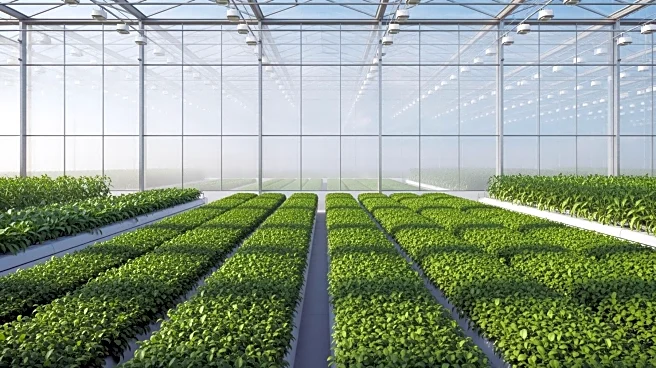What's Happening?
A delegation of Japanese businessmen, led by Ryohei Shikata, the first secretary of the Economic Section of the Japanese Embassy in Madrid, visited El Ejido to learn about its agricultural production methods.
The visit was hosted by Manuel Martínez, the councilor for Agriculture and the Environment, who highlighted El Ejido's reputation as a leading municipality in fruit and vegetable production. The region boasts over 13,500 hectares of greenhouses, producing more than one million tons of fruits and vegetables each season, valued at over 1,400 million euros. Additionally, El Ejido supports a sophisticated agro-industry with around 95 companies generating an annual turnover exceeding 885 million euros. Sustainability is emphasized as a core pillar of El Ejido's agricultural model, with practices that include biological control standards, efficient water use, and resource reuse through circular economy projects.
Why It's Important?
The visit underscores the global interest in sustainable agricultural practices, particularly those that balance high production with environmental responsibility. El Ejido's model serves as a potential blueprint for other regions seeking to enhance their agricultural output while minimizing ecological impact. The Japanese delegation's interest suggests potential international collaborations or investments that could further bolster El Ejido's economy and influence. This exchange of knowledge may lead to innovations in agricultural practices both in Spain and Japan, promoting global sustainability efforts.
What's Next?
Following the visit, there may be discussions or agreements between Japanese and Spanish agricultural sectors to implement similar sustainable practices in Japan. The exchange could lead to joint ventures or partnerships aimed at improving agricultural efficiency and sustainability. Additionally, El Ejido might see increased interest from other international delegations, further establishing its role as a leader in sustainable agriculture.
Beyond the Headlines
The visit highlights the growing importance of sustainable agriculture in global economic and environmental strategies. It reflects a shift towards more responsible production methods that prioritize ecological balance. This trend could influence policy changes and encourage more regions to adopt similar practices, contributing to global efforts to combat climate change and resource depletion.









